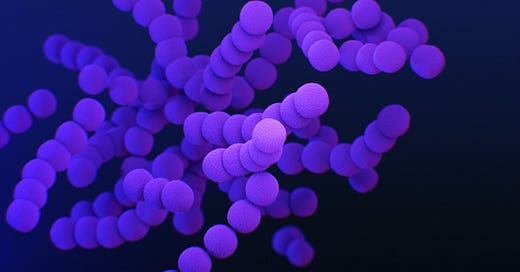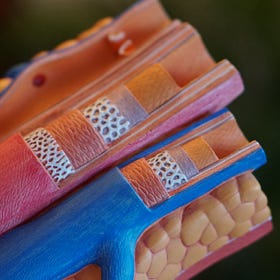Autophagy - How Our Body Performs a Self-Renewing Process
It tends to slow down over time as we age, unfortunately.
Our bodies consist of approximately 38 trillion cells. These cells are present in just about every part of our body as parts of various different systems and carry out various different functions to support the health of the human body as a whole.
The human body, therefore, can be likened to an organisational structure. In the grand scheme of things, an employee who works in a company is part of that company’s system.
There will exist multiple different departments within that organisation, each department having its own system to operate — some departments deal with internal organisational functions, such as Human Resources (HR) or Information Technology (IT).
Without those departments, an employee may not be able to work efficiently with current technological tools, or they may not get paid their wages promptly.
There are other departments that deal with the external side of things, such as the sales department, which focuses on providing solutions for clients. A person who is working in HR would not necessarily be suited to work in sales, for instance.
All these individual departments have mid level managers and higher level management tiers, who are present to regulate the workflow and the tasks that are required for each department to function and to improve.
Communication is key for each department to be on the same page — hence emails, messenger apps and phone calls are necessary to get messages sent across effectively. A nastily worded email can create its own issues inasmuch as a vague email can cause confusion.
The cells in a system are responsible for performing different functions. In our digestive system, for instance, we have the parietal cells in the stomach that are responsible for producing the gastric acids needed for food digestion, and we have various cells in the liver that detoxify various substances, which can then be eliminated via a liquid channel (urine) or solid channel (faeces).
Our Body Eliminates Toxins Via Multiple Different Pathways.
Our body has this uncanny knack of being able to process and eliminate most of the stuff that we actually do ingest. We eat solid foods and eliminate them as faeces. We drink liquids and eliminate them as urine.
As a corporate organisation conducts routine renewals to maintain its productive efficiency (via firing, hiring and the dreaded annual performance reviews), many of the cells in our systems also do undergo that form of routine renewal.
Cellular function and renewal
Most cells are able to reproduce asexually via binary fission. The parent cell is able to split up into 2 daughter cells during reproduction, and it can then carry on the work of the parent cell.
Inefficiently operating cells are “fired” from the efficiency standpoint, because business is business.
When they are earmarked for firing, they get tagged by the p62 protein and are marked for elimination, much like how a defective product at a supermarket is tagged for disposal, or marked down at a discounted price (for the customer to dispose of it).
However, a living cell will not go out without a fight — it has to be put down via apoptosis first, where it is “programmed” to commit suicide. As it is written in this article:
Apoptosis is described as an active, programmed process of autonomous cellular dismantling that avoids eliciting inflammation.
Therefore, a cell that is earmarked for elimination will be first programmed to commit suicide via apoptosis.
Once a cell has undergone apoptosis, it should be disposed of via phagocytosis and autophagy, where it can be digested down completely. Phagocytosis deals with extracellular materials (outside the cell), while autophagy deals with intracellular materials (within the cell).
In fact, dead foam cells in atherosclerotic plaques can be removed via efferocytosis, which is similar to autophagy:
Efferocytosis And Its Oft-Unstated Role In Artery Clogging.
The word “efferocytosis” isn’t one that is frequently thrown about these days. Most heart disease patients would not have heard of this word before, because rarely is it (if ever) discussed by their doctors.
Keep reading with a 7-day free trial
Subscribe to The Biochemistry Of Human Health to keep reading this post and get 7 days of free access to the full post archives.






